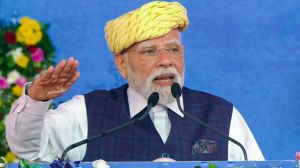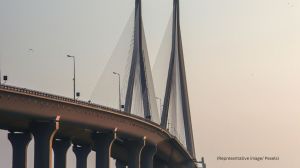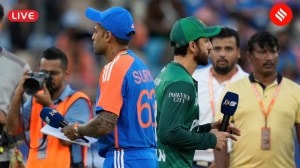Cross-border terror: Sinha doesn’t expect too much from US
India needs to take a pragmatic view of different standards that the US adopts in its fight against terrorism along with Pakistan on the al-...

India needs to take a pragmatic view of different standards that the US adopts in its fight against terrorism along with Pakistan on the al-Qaeda and the Taliban, and on Islamabad’s eastern front with India.
Nevertheless, External Affairs minister Yashwant Sinha prised open a crack in the freeze with Pakistan, saying if Musharraf admitted that cross-border infiltration was not ‘‘under his control,’’ and if New Delhi found this ‘‘credible, then we can look at it’’. Insisting that there was a contradiction between what Musharraf was saying now and his denials earlier, Sinha said: ‘‘‘Both cannot be true.’’
Speaking to the press here today, Sinha said India would have to ‘‘clearly understand’’ the difficulties involved in taking forward its ties with Pakistan.
He hinted on the need to lower expectations from the US, especially on its ability to get Islamabad to end infiltration and dismantle the terror infrastructure. ‘‘The US is assisting Pakistan on its fight against terrorism on the western border…There the US is involved directly, in India they are not. We have to understand this, when they (the US) call Pakistan a stalwart ally.’’
Clearly, last week’s visit of US Deputy Secretary of State Richard Armitage seems to have underlined this feeling. After the high this summer, when he promised to get Musharraf to fulfill both, the feeling is inescapable that New Delhi has hit a plateau with its ties with the US.
Sinha was careful to follow in the wake of the Foreign Office’s often-stated positions on Pakistan, SAARC’s importance, even as he denied that New Delhi had a ‘‘big brotherly attitude’’ towards neighbours. Nevertheless, he couldn’t hide his disappointment with the US for deciding not to press Musharraf to deliver.
‘‘Terrorism did not begin for India on September 11. As for whether tensions have eased, we, India and the US, have to make our own assessments. Their understanding of the danger of an immediate conflict between India and Pakistan earlier, was flawed. Those who saw it in those terms would now see it as an easing of tension. We didn’t.
‘‘When we moved our troops, it was to prevent aggression. That might have given the impression that conflict was imminent. But I don’t see it that way. We have our policy and we will continue to stand by it.’’
Photos



- 01
- 02
- 03
- 04
- 05




























